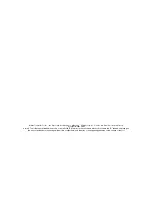
www.scheppach.com /
service@scheppach.com /
+(49)-08223-4002-99 /
+(49)-08223-4002-58
GB | 23
This may have the following causes:
• Passage points, where connection cables are
passed through windows or doors.
• Kinks where the connection cable has been im-
properly fastened or routed.
• Places where the connection cables have been cut
due to being driven over.
• Insulation damage due to being ripped out of the
wall outlet.
• Cracks due to the insulation ageing.
Such damaged electrical connection cables must not
be used and are life-threatening due to the insula-
tion damage.
Check the electrical connection cables for damage
regularly. Make sure that the connection cable does
not hang on the power network during the inspection.
Electrical connection cables must comply with the
applicable VDE and DIN provisions. Only use con-
nection cables with the marking „H05VV-F“.
The printing of the type designation on the connec-
tion cable is mandatory.
AC motor
• The mains voltage must be 230 V~
• Extension cables up to 25 m long must have a
cross-section of 1.5 mm
2
.
Connections and repairs of electrical equipment may
only be carried out by an electrician.
Please provide the following information in the event
of any enquiries:
• Type of current for the motor
• Machine data - type plate
• Machine data - type plate
10. Cleaning, maintenance, and storage
n
Important!
Pull out the power plug before doing any cleaning and
maintenance work on the equipment. Risk of injury
from electric shock!
n
Important!
Wait until the equipment has cooled down complete-
ly! Risk of burns!
n
Important!
Always depressurize the equipment before carrying
out any cleaning and maintenance work! Risk of in-
jury!
10.1 Cleaning
• Keep the equipment free of dirt and dust as far as
possible. Wipe the equipment with a clean cloth or
blow it down with compressed air at low pressure.
8.5 Mains connection
• The compressor is equipped with a mains cable
with shock-proof plug. This can be connected to
any 230-240 V~ 50 Hz shock-proof socket which is
protected by a 16 A fuse.
• Before you use the machine, make sure that the
mains voltage is the same as the operating voltage
(see the rating plate).
• Long supply cables, extensions, cable reels etc.
cause a drop in voltage and can impede motor
start-up.
• At low temperatures below +5°C, sluggishness
may make starting difficult or impossible.
8.6 ON/OFF switch (Fig. 2 Pos. 17)
• Pull the ON/OFF switch (17) upwards to switch
on the compressor. To switch off the compressor,
press the ON/OFF switch (17) down.
8.7 Setting the pressure (Fig. 4)
• Use the pressure regulator (3) to set the pressure
on the pressure gauge (5).
• The set pressure can be drawn from the quicklock
coupling (Fig. 1/Pos. 4).
•
The vessel pressure can be read off the pressure
gauge (6).
8.8 Setting the pressure switch
• The pressure switch (2) is set at the factory.
Cut-in pressure approx. 6 bar
Cut-out pressure approx. 8 bar.
8.9 Overload protection switch (fig. 14 pos. 19)
• The compressor has an automatic protection
against thermal overload. The overload protector is
activated at high engine temperature.
•
The device is turned off. Re-commissioning of the
device can be done only after cooling down and
manual reset.
• Follows after activation:
- Let the unit cool down
- Press the overload protection switch (19)
• Start the device as described under 8.6
9. Electrical connection
The electrical motor installed is connected and
ready for operation. The connection complies
with the applicable VDE and DIN provisions.
The customer‘s mains connection as well as
the extension cable used must also comply with
these regulations.
Damaged electrical connection cable
The insulation on electrical connection cables is of-
ten damaged.
















































